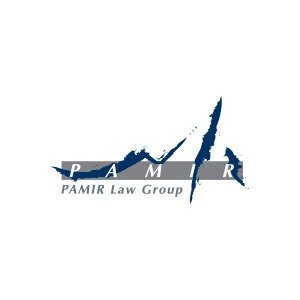Best Public-Private Partnerships (PPP) Lawyers in Taipei
Share your needs with us, get contacted by law firms.
Free. Takes 2 min.
List of the best lawyers in Taipei, Taiwan
About Public-Private Partnerships (PPP) Law in Taipei, Taiwan
Public-Private Partnerships (PPP) in Taipei, Taiwan refer to cooperative arrangements between government entities and private sector companies for the development, financing, operation, and maintenance of public infrastructure or services. These arrangements allow the public sector to benefit from private sector investment, expertise, and efficiency while allowing private entities to participate in government projects with clearly delineated rights and responsibilities. PPPs in Taipei often involve large-scale projects such as transportation systems, water supply, healthcare facilities, and urban redevelopment.
Why You May Need a Lawyer
Engaging in a Public-Private Partnership can be complex and typically involves significant legal, financial, and contractual obligations. Common situations where you may require legal help include:
- Drafting, reviewing, or negotiating PPP contracts and agreements
- Understanding compliance requirements under Taiwanese laws and regulations
- Resolving disputes between public and private entities
- Advising on risk allocation, liability, and guarantee provisions
- Assisting with land acquisition or intellectual property matters
- Navigating procurement processes and tendering requirements
- Dealing with regulatory authorities or securing necessary permits
- Structuring project finance and securities arrangements
- Fulfilling foreign investment requirements if foreign entities are involved
- Providing ongoing legal support during the operational phase of a project
A lawyer who specializes in PPP can help you protect your interests and ensure compliance with local laws and best practices.
Local Laws Overview
The legal framework for Public-Private Partnerships in Taipei is largely governed by the Promotion of Private Participation in Infrastructure Projects Act (PPIP Act), which outlines the process and regulations for private sector involvement in public infrastructure. Key aspects of local laws relevant to PPP in Taipei include:
- The definition and classification of eligible PPP projects
- Procedures for public tendering and the selection of private partners
- Contractual models such as Build-Operate-Transfer (BOT), Build-Transfer-Operate (BTO), and other PPP variants
- Government incentives, such as land use rights or financial support
- Allocation of risks, responsibilities, and revenue sharing
- Expropriation and land acquisition processes
- Performance monitoring and penalty mechanisms
- Dispute resolution methods, including local and international arbitration
- Rules for foreign investment and participation in PPP projects
Both the Taipei City Government and the central government play important roles in supervising, regulating, and approving PPP projects. Compliance with both national and local policies is essential for the success of any PPP initiative.
Frequently Asked Questions
What is the most common type of PPP project in Taipei?
Transportation infrastructure, such as metro systems and expressways, along with public buildings and wastewater treatment facilities, are among the most common PPP projects in Taipei.
Do foreign companies need special approval to participate in PPP projects in Taipei?
Yes, foreign companies must meet certain legal requirements and may need approval from regulatory authorities, depending on the type of project and sector.
What legal risks should private partners be aware of?
Key risks include regulatory changes, contract disputes, land acquisition problems, payment delays, and unforeseen events affecting project completion or operations.
How are disputes typically resolved in PPP projects?
Disputes are often resolved through negotiation or mediation first. If necessary, they may be escalated to arbitration or litigation according to the terms set in the PPP agreement.
Can the government terminate a PPP contract early?
Yes, but early termination is subject to specific contractual terms and often requires compensation to the private partner, unless there is a breach of contract or force majeure event.
What incentives are available for private partners?
Incentives can include tax breaks, subsidies, guaranteed minimum revenue schemes, land use concessions, and assistance with regulatory approvals.
How are PPP contracts structured in Taipei?
PPP contracts in Taipei are typically structured to clearly allocate risks, responsibilities, profit sharing, and dispute resolution mechanisms between the public and private parties.
Are there transparency requirements for selecting private partners?
Yes, the tendering and selection process is governed by transparency and fairness principles, including public announcements and clear evaluation criteria.
What government agencies oversee PPP projects in Taipei?
The Taipei City Government and relevant central agencies such as the Ministry of Finance and the Public Construction Commission oversee PPP projects and ensure regulatory compliance.
Is environmental compliance important for PPP projects?
Yes, PPP projects must meet environmental regulations and may require environmental impact assessments, especially for large-scale infrastructure developments.
Additional Resources
The following resources can provide further information and assistance regarding Public-Private Partnerships in Taipei, Taiwan:
- Public Construction Commission (PCC) - responsible for PPP policy, guidance, and oversight
- Ministry of Finance Special Projects Office - supports project financing and regulatory matters
- Taipei City Government Department of Urban Development - oversees city-based PPP initiatives
- Taipei Bar Association - provides referrals to lawyers experienced in PPP matters
- Local legal consultancies specializing in construction, procurement, and infrastructure law
Next Steps
If you need legal assistance with a PPP project in Taipei, here are some practical steps to take:
- Consult with a qualified lawyer or legal team experienced in PPP and infrastructure law
- Prepare relevant documents such as project proposals, contracts, and records of communication
- Gather information on local regulations and identify the governmental body responsible for your project type
- Schedule an initial consultation to discuss your goals, challenges, and the legal requirements unique to your project
- Consider ongoing legal representation to handle negotiations, compliance matters, and possible disputes
Early engagement with legal experts will help you navigate the complexities of PPP arrangements and safeguard your interests throughout the project lifecycle.
Lawzana helps you find the best lawyers and law firms in Taipei through a curated and pre-screened list of qualified legal professionals. Our platform offers rankings and detailed profiles of attorneys and law firms, allowing you to compare based on practice areas, including Public-Private Partnerships (PPP), experience, and client feedback.
Each profile includes a description of the firm's areas of practice, client reviews, team members and partners, year of establishment, spoken languages, office locations, contact information, social media presence, and any published articles or resources. Most firms on our platform speak English and are experienced in both local and international legal matters.
Get a quote from top-rated law firms in Taipei, Taiwan — quickly, securely, and without unnecessary hassle.
Disclaimer:
The information provided on this page is for general informational purposes only and does not constitute legal advice. While we strive to ensure the accuracy and relevance of the content, legal information may change over time, and interpretations of the law can vary. You should always consult with a qualified legal professional for advice specific to your situation.
We disclaim all liability for actions taken or not taken based on the content of this page. If you believe any information is incorrect or outdated, please contact us, and we will review and update it where appropriate.
















